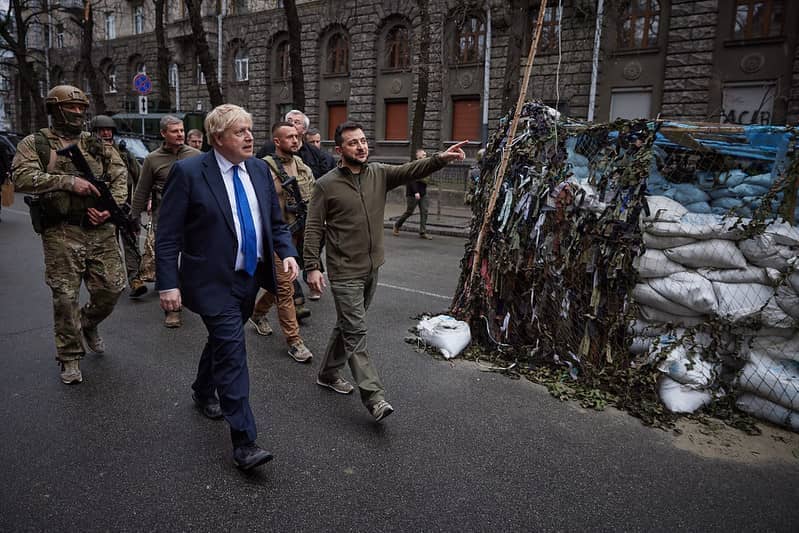According to the Metropolitan police, Boris Johnson broke his own lockdown rules during the Covid crisis and, according to almost everybody else, he repeatedly lied to the Commons and the nation to cover it up. This is presumably why 57 per cent of people surveyed in one snap poll think he should resign as prime minister over partygate.
But ordinary Britons will not end Johnson’s tenure in Downing Street. Given he is refusing to resign that can only be accomplished by a minimum of 54 Conservative MPs who need to write to Graham Brady, chair of their 1922 committee, expressing a lack of confidence in Johnson as party leader. Brady would then be obliged to call a vote of confidence. Should he lose, Johnson could remain as titular leader and prime minister while his MPs whittle down their favoured candidates to replace him in a series of exhaustive ballots until they are left with just two candidates. Party members – numbering 200,000 or so – will then be asked to decide between them. The victor could then, as leader of the party with a Commons majority, be formally installed as prime minister by the monarch
But most Conservative MPs who have expressed a view since the Met announced its new round of fixed penalty notices argue that the middle of the Ukrainian crisis is not the time to change prime minister. Some might think this disingenuous, self-serving and bogus reasoning. But even long-standing critics of Boris Johnson over partygate, like Andrew Bridgen, withdrew their letter to Brady after Putin attacked Ukraine, saying: ‘It would be an indulgence to have a vote of no confidence at the time of an international emergency, and this is not going to go away quickly.’
Both parties are free to decide how to replace their leader in but once in government neither has a process that is fit for purpose
Against this view are those in the opposition parties who argue, quite rightly, that Britain is not currently at war and that in any case the country changed prime ministers during both world wars. Going back even further, Britain even held a general election during the Boer war – although the prime minister did not change as a result. And Lord Aberdeen resigned towards the end of the Crimean war and was replaced by Lord Palmerston.
Indeed, history suggests that it can be beneficial to replace a prime minister in a moment of crisis. Palmerston was more vigorous than Aberdeen; David Lloyd George was a human dynamo compared to Herbert Henry Asquith; and nobody bemoans the fact that Neville Chamberlain was replaced by Winston Churchill, least of all Johnson who has done his best to associate himself with Chamberlain’s successor.
Yet no one historical moment is exactly the same, and there are important differences between 2022 and 1915 and 1940. For while the Liberal Asquith and Conservative Chamberlain were replaced as prime minister they remained as party leaders. Lloyd George and Churchill were moreover prime ministers leading coalitions that relied on the support of MPs from across the Commons: neither would have entered No. 10 without the support of other parties.
Crucially, in both cases the change of prime minister did not lead to an election by MPs or party members, let alone across the country. The regime change was instead engineered by a small number of elite politicians who united behind the one obvious replacement. And as a result, these changes occurred with lightning speed. It took just a day between Asquith’s resignation and Lloyd George’s installation; and a similarly brief period separated the end of the Norway debate in the Commons, which signalled the end for Chamberlain, and Churchill’s audience with King George VI.
In contrast, should Boris Johnson lose a vote of confidence it could take three months for his party to find a replacement: that’s how long it took in 2019. The only way to avoid this outcome is if one candidate is so popular they unite all Conservative MPs behind them; and the only figure who seemed close to achieving that was – until last week anyway – Rishi Sunak.
Conservatives have William Hague to thank for this. In his attempt to revive the party after its disastrous 1997 election defeat, Hague gave members the final say in determining their leader, a decision he has subsequently described as ‘spectacularly wrong’. His reform might have been more democratic than just leaving it to MPs (who were given that power in 1965) but it is spectacularly ill-suited to a party in government – especially in the midst of an international crisis that might end in a nuclear stand-off. And Labour’s process is no less tortuous.
Both parties are free to decide how to replace their leader in opposition but once in government neither has a process that is fit for purpose.
Johnson’s refusal to resign and the genuine dilemma it has posed to his MPs during this time of crisis highlights how this normally unproblematic process has become a major issue. To avoid a repeat of this unfortunate situation it is vital that both parties address how a beleaguered and discredited prime minister can be replaced by his party, if not for themselves, at least for the future good of the country.






Comments